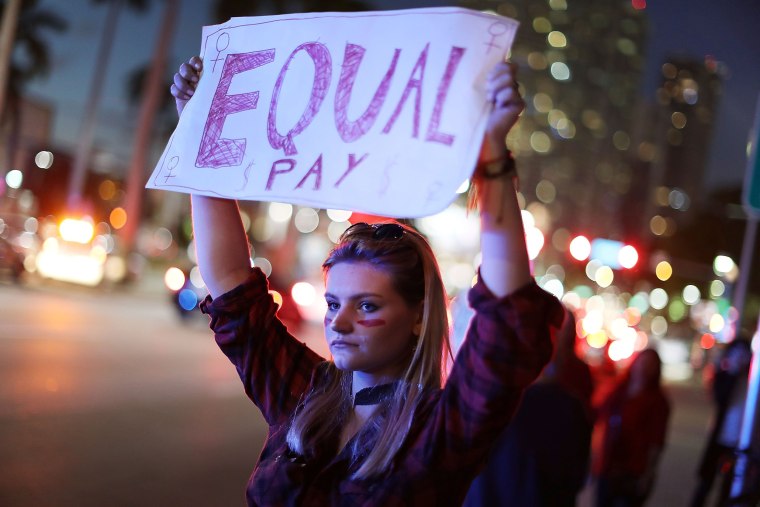Women earned roughly half the income of men in the United States over a 15-year period, taking into account time off for family or child care, according to a report released on Wednesday, which found the pay gap is far greater than has commonly been assumed.
In an examination of women's income from 2001 to 2015, the Washington-based Institute for Women's Policy Research found that women's income was 51 percent less than men's earnings, which includes time with no income.
"Much ink has been spilled debating whether the commonly cited measure of the wage gap — that women earn 80 cents for every dollar earned by a man — is an exaggeration due to occupational differences or so-called 'women's choices,'" Heidi Hartmann, president of the institute and a co-author of the study, said in a statement.

"But our analysis finds that we have actually been underestimating the extent of pay inequality in the labor market," Hartmann said.
The study, "Still a Man's Labor Market," showed that the wage gap has narrowed since 1968, with women's inflation-adjusted income rising to an average of $29,000 for the period from 2001 to 2015, compared with $14,000 from 1968 to 1982.
But women are nearly twice as likely as men to take at least one year off work and they pay a high price for it. Women who left the workforce for a year earned, during their years on the job, an average of 39 percent less than men, the study found.
Companies are likely to pay their employees less, regardless of gender, if they leave their jobs at some point. But women are more often hurt by that pay cut, the study found, because they are more likely to take time off.
With paid family and medical leave and affordable child care, women are more likely to stay in the workforce and earn higher pay, according to the study.